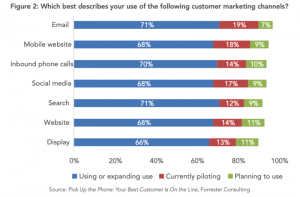What’s in a name? Deciding what to name your startup business can be a high pressure task. At best, you want your company name–and logo, for that matter–to be easy to read, descriptive, and, most importantly, memorable. But a lot of companies decide on names that just don’t stick. The last thing you want is for your company to be forgettable.
So what makes for a memorable startup company name? Well, there are a handful of different approaches you could take, illustrated in the infographic below. Typically, your company name should be grounded in your mission statement, but be interesting enough that it isn’t forgettable. To achieve this, you might decide to get creative and make up your own word–or you might decide to go the classic route and pick one really powerful word. What matters is that whatever approach you take to name your company, that you do it well.
Here are 10 popular startup naming approaches:
- Related Word: The name of the company is related to its product or service. For example, Dropbox is where you “drop” your files to host them.
- Made Up Word: Typically, these words will be related to the product or service. For example, Giphy is a site for gifs.
- Vague Word: Some companies like to maintain an air of mystery. Or they just liked the way the word sounds. Take Tilt, for example.
- Letter Swap: This type of name is very popular. Replace one letter with another same-sounding letter, as in Lyft.
- Letters Added: Because sometimes a letter makes all the difference. Like SpaceX, which makes “space” sound even more extreme than it already is.
- Letters Dropped: Like company names with letter added, dropping a letter can also make company names more appealing. You see this probably most often in the removal of the e from “er” sounds, like in Foundr magazine.
- Domain Added: Another popular trend is the use of a unique domain that is part of the company name, like Last.fm. The risk with this approach is that people may get confused and attempt to search for the company name with a normal domain like .com.
- Related Word Smash: Word smashes are fun. Two or more words related to a company’s product or service are combined to make a new word that contains both word meanings. For example, “venn diagram” and “engage” make Venngage.
- Random Word Smash: Like a related word smash company name, except the combined words aren’t really related to the company’s product or service. Like AppSumo–not overtly relevant, but still with a catchy ring to it.
- The Randoms: These company names could fit into any number of sections. Like Airbnb–it’s part word smash, part letters dropped, part related word. And it’s very memorable.
The clever mind map infographic below organizes startup company names by category, and then rates them on their effectiveness on a scale of “Perfect”, to “Kinda”, to “Nah”. A sample of 77 companies that raised money in the last year were pulled from CrunchBase. Those companies were sorted into categories based on their name type.
The companies were then rated on how effective their names were at communicating their mission statements on CrunchBase, on a very scientific scale of “Perfect” to “Nah.” Basically, if someone who knew nothing about the company is able to infer what the company’s product or service is, the company gets a “Perfect.” But if the name gives nothing away about what the company actually does, they get a “Nah.”
Certain companies will undoubtedly jump right out at you.

What do you think? Which startup company names stick and which ones fall flat?
Digital & Social Articles on Business 2 Community(84)








